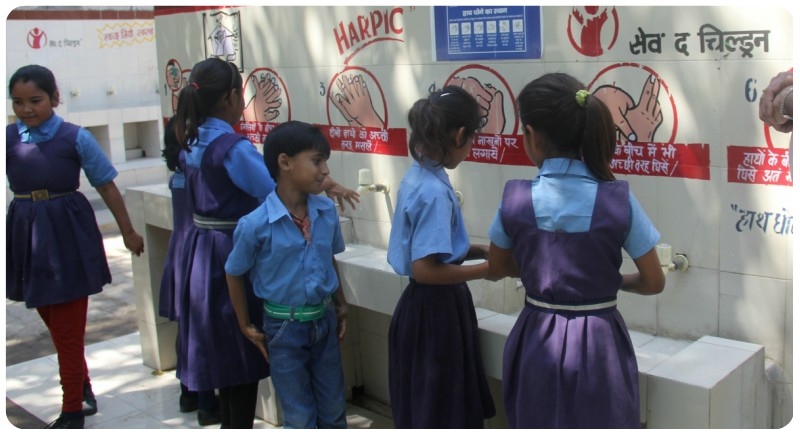UN claps for India; says it has made rapid progress in increasing access to sanitation in schools
New Delhi, September 4: United Nations lauded India for making rapid progress in increasing access to sanitation in schools by a report. Noting that the proportion of schools without any sanitation facility has decreased at a fast pace in the country.

A new joint UN agency study, ‘Drinking Water, Sanitation and Hygiene in Schools: 2018 Global Baseline Report,’ says that good hygiene facilities in schools provide the basis of a healthy learning environment and that girls are more likely to attend when they are on their period.
The annual report is produced by the World Health Organization/UN Children’s Fund Joint Monitoring Programme, or JMP, which has been monitoring global progress on drinking water; sanitation and hygiene (WASH) since 1990.
It looks at the progress made towards reaching the targets of two of the Sustainable Development Goals (SDGs): Goal 6 (Clean water and sanitation), and Goal 4 (Ensure inclusive and equitable quality education and promote lifelong learning opportunities for all).
WASH in schools programmes provide an entry point for the education, awareness-raising and behavior change required to achieve the SDG6 target of ending open defecation by 2030, the report said.
Between 2000 and 2016, the proportion of schools in India without any sanitation facility decreased even faster than the proportion of the population practicing open defecation.
The report said that a recent survey in India also collected information on the availability of facilities for menstrual hygiene management. The proportion of schools with bins with lids for the disposal of sanitary materials varies widely across states in India, from 98 percent in Chandigarh to 36 percent in Chhattisgarh. Mizoram is the only state where more than 50 percent of schools have a functional incinerator for the disposal of sanitary waste.
It said the Government of India issued national guidelines on menstrual hygiene management in 2015 but a survey in 2016-2017 showed that only two-thirds of schools in India provide menstrual hygiene education with wide variations between states.





